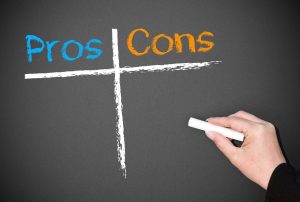Stock or property investment: What is the better investment? Every investor has had to deal with the choice between real estate property investment and stocks. Both investment choices offer good returns but also have enough disadvantages to discourage you from them. This blog post is meant to help you review the pros and cons of both of them. Let the best man win!
Stock Market Investing
The stock market has been the investment choice of many millionaires ever since its inception. Commonly considered a good source of passive income, the stock market can offer great returns; some newly-traded companies can average 50% annual growth. Other times, you’re lucky if you can score a 10% return on investment before expenses and inflation. Let’s explore the pros and cons further.

The Ups of Stock Market Investing
Liquid Investment
You can sell stocks within days without going through much hassle. With the SEC’s three-day settlement rule, it will only take you three days from the time you sell the stocks until the funds are transferable to you.
Return on Investment
Stocks typically do better than a real estate investment in one year. With many stocks fluctuating due to economic factors, you might find yourself a rich man overnight because you simply invested in the right company. This is why many investors are fine with the fact that a return on investment is only made when stocks are sold.
Passive Income
Stock investors don’t physically manage anything. Keep in mind that investing in a company’s stock does not give you any control over the behavior of the company or its decisions. While this sounds like a con, that’s what makes it a passive income investment.
Stock investments are great for passive income. You collect dividends and you don’t have to put much effort or thought into it- as opposed to property investment where you have to be hands-on for most of it.
If you’re looking for a passive income investment, read this blog post: Real Estate Investing for Beginners: A Guide to Passive Income Strategies.
Low Transaction Costs
At this point in time and technology, stock trading has become flexible and easy. You can buy stocks with a transaction fee of $5 online without having to deal with other transaction costs. However, with property investments, you are looking at hefty transaction costs and closing costs that have not improved over the previous decades.
The Downs of Stock Market Investing
Stockholders Are Paid Last if the Company Goes Belly-Up
This is a big disadvantage of stock investing as preferred stockholders and bondholders get the first pick at any cash available. In other words, before the company pays you dividends on your stock shares, the preferred shareholders will get what was promised. This has the ability to shrink your return on investment drastically.
Up & Down
There is not much stability with stock market investing. With prices going up and down every minute, many stock investors end up selling low out of fear of losing more. Accordingly, it has happened that many investors sold only to notice that prices have gone back up within a day! A hectic investment field.
Related: Can the Stock Market Affect the Real Estate Market?
Professionals Rule the Stock Market
With stock traders and companies specialized in stock market investments, it’s harder for the average joe to get into the field while battling the sharks of it. Meanwhile, real estate investors of all backgrounds can go for property investment, learn the ropes, and become experts.
Get started in real estate the right way. Learn how Mashvisor can help.
Meanwhile…
Property Investment
Real estate will always be the desired investment choice of many. According to Investopedia, more than 15% of Americans have investment properties other than their primary residences. The fact that it’s a tangible, relatable asset that we see and touch in our everyday lives makes it a lot easier for real estate investors to dive right into. If you play your cards right, making money in real estate is an achievable goal. Additionally, you can take your pick from the many real estate investment strategies that it offers.
The Ups of Property Investments
Stability
The real estate market is definitely a more stable option when compared to the stock market. It’s a stable investment choice that you can touch, feel, and improve!
Value
The value of real estate may fluctuate minimally over the course of years and certain economic events. However, the value never gets lost or plummets to zero. That is because the real estate value will always be associated with the tangible asset factor like the land and the structure of the property.
Never-Ending Appreciation
Yes, you might have to face a market crash after you’ve bought a real estate property. However, the market will recover, and your property investment will still appreciate over time. Moreover, it has been proven that the longer you own a piece of property, the higher its price will get over the course of years. Keep in mind that there are many real estate markets that are simply better if you’re looking for real estate appreciation.
Read this blog post if you’re looking for appreciation in an investment property: Invest in the 5 Fastest Appreciating Real Estate Markets in 2018.
Tax Benefits
With property investment, real estate investors can get deductions for almost any expense that comes their way. In any case, real estate investors can deduct interest rates, operating expenses, insurance, and even depreciation. This alone is enough to draw many investors into rental property investing.
Diversification
The real estate market is full of opportunities for any investor to explore. You can invest in short-term rentals, long-term rentals, or even REITs. Additionally, you can go for a commercial or an industrial real estate investment. The world is your oyster!
Predictable
With the technological advancements available to real estate investors, you can predict costs, rental income, taxes, HOA fees, and even cap rates within a few minutes. With Mashvisor’s rental property calculator, real estate investors can do a basic search and find out all the information needed to get to an investment property that suits their investment needs. Give it a shot and make use of the 14-day free trial by clicking here.
Wondering about other uses of a rental property calculator? Read this blog post: How Bad Do You Need a Rental Property Calculator?
The Downs of Property Investment
High Transactional Cost
When you buy a rental property, you are going to endure closing costs and many other costs to get your property rolling cash right into your pocket. Additionally, many properties will need repairing and improvements in order to generate the most substantial amount of rental income.
It Takes Time to Make Money
Many beginner real estate investors believe that making money in real estate is an overnight success type of thing. That’s a misconception! Real estate investors must work very hard in the early stages of their careers as building equity and creating a cash flow plan can be tiring work. Additionally, they have to calculate precisely to make sure they don’t end up with negative cash flow income properties.
Not Easily Liquified
If you decide to sell an investment property, you’re not going to have the cash in your bank account within three days as is the case of stock market investing. Many properties end up sitting on the market for years until they attract a suitable buyer. It’s important to note that the average days on market fluctuates between 90 to 120 days for most US real estate markets.
Leveraging
The real estate investor can make use of leverage when buying a real estate property. However, leverage is as much a negative as it can be a positive. It’s a deadly weapon in the hands of the ignorant. Keep in mind that overleveraging can make your property investment an even riskier business. Read this blog post to get more info on leverage with property investment: Real Estate Investments and Leverage- All You Need to Know.
Not So Passive (in most cases)
Generating a passive income through property investment is possible but costly. Keep in mind that property investors will have to put some kind of effort to buy, maintain, occupy, and collect rent checks. A typical real estate investor would have to screen tenants, check references, maintain the property and deal with many issues, such as a leaky roof or a new water heater. It’s an inevitable chore of the average real estate investor.
However, many real estate investors choose to sacrifice a percentage of their annual income and hire professional property management companies which can make the real estate investment property more of a passive income investment.
Property Investment vs Stock Market Investment: Which One to Go For?

No one is going to make this investment decision for you. We strongly advise starting in real estate investing as you can benefit from the time invested through gaining real estate appreciation. Moreover, property investment is a safe investment choice that millennials can go into without many barriers.
If you’re still wondering how to become a real estate investor, start by reading and educating yourself on the right type of investment property for you and for your local real estate market.
Final Thoughts
There is no property investment guide or stock market guide that’s going to shield you from issues that get in your way when you’re starting out with either path. However, it’s important to know that becoming a successful real estate investor or a stock market investor requires dedication and hard work all around. Whether you go for a stock investment or a property investment, make sure you educate yourself properly on it!
To learn more about how we will help you make faster and smarter real estate investment decisions, click here.
Which will be your next investment: a stock or property investment? Why?